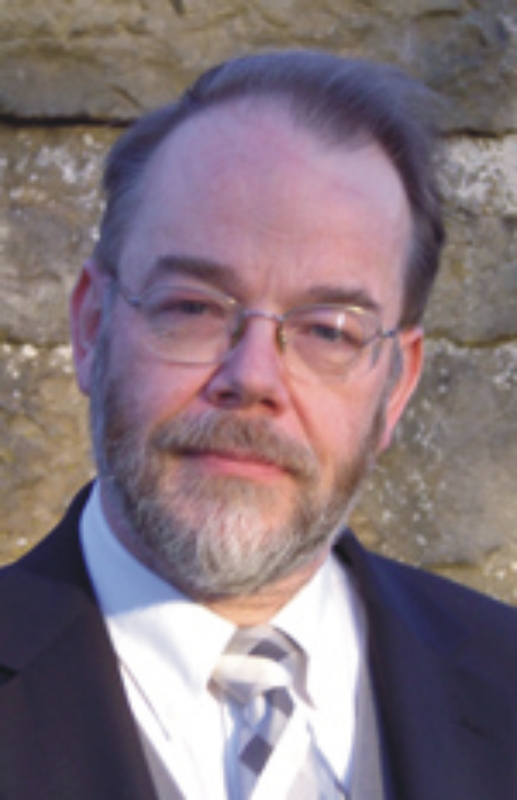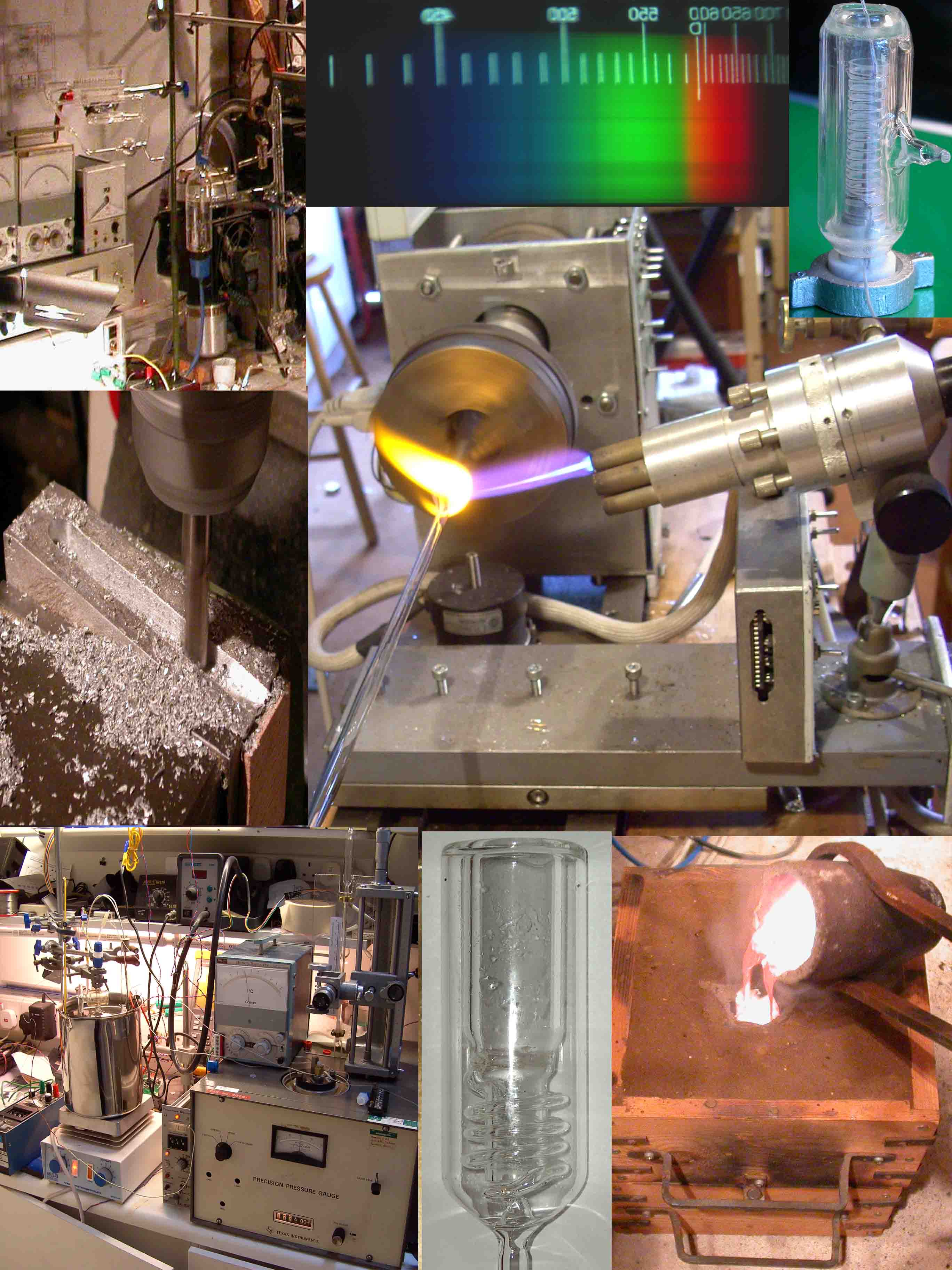
ALL MATERIAL COPYRIGHT KEVIN SCOTT 2011. LINKS TO THIS SITE ARE WELCOME BUT DO NOT COPY MATERIAL FROM THIS SITE TO ANY OTHER WEBPAGE.
If you find this site useful, please support it by making a donation of $1 to help maintain and develop it. Click on the PAYPAL DONATE button to do this safely. But there is no obligation - please avail yourself of the information and facilities of the site at no charge.

"I am a professional scientist, but I have never given up being an amateur scientist too. The question is how much high quality science can I do in my garage? The answer is quite a lot. In fact I use high-vacuum and laser technology, gas and liquid chromatography, various forms of spectroscopy, metal smelting, glass-blowing, smart electronics, computing, arc and spot welding, forging and blacksmithing, milling and turning, grinding and lapping, to the extent that I am coming to believe there is practically nothing technical or scientific that I can't do in my garage! Of course, I admit there are some things that are beyond my reach, mostly because of scale: CERN-scale particle research I concede is beyond me. And of course, I don't try to make everything from scratch - I use the scientific and technological infra-structure available. I used to make my own printed circuit boards, but now find it relatively inexpensive to use a specialist firm.
I find the possibilities that are presented to me are limited only by my imagination and creativity. The hardware in my garage was not expensive - all second-hand and some needing repair. But with it I find I reach the coal-face of scientific invention: the limitations are in my head, not in the technology available to me - so I'm not blaming my tools or their absence!"

It is good, I think, that science is not fully professionalised. In the Greek world, it was always a liberal art, practised by those who had the time, education and wealth to indulge their curiosity about the natural order. As modern science came to flourish in the 17th,18th and 19th centuries, it did so largely in the hands of independent enthusiasts who, rather than earning their living by science, rather spent their own resources in financing their research. It was not until the twentieth century in Britain that there were serious efforts to professionalise scientific enquiry. There have been some benefits in establishing public standards for scientific work, and in encouraging collaboration among scientists but professionalisation can benefit the practice of science only up to a point. Scientific research depends for its fruitfulness on the whole idea of possibility - what drives an experimenter to the bench is that an idea might work. Anything which tends to close that sense of possibility down will have a strongly adverse effect on the conduct of science. To some extent professionalisation of science might have brought more money to it, but it has also brought regulation and control, and restrictions in availability of some materials.
This site is dedicated to maintaining, as far as possible, non-professional science. The word is "amateur", of course, but without the pejorative or dismissive weight which that word has come to bear. Amateur science is not, by definition, inferior science. Virtually all the best science that has ever been done up to the twentieth century has been amateur. The measurement of the radius of the earth by Eratosthenes in the third century BC was an amateur effort which obtained a result to within less than 0.4% of the accepted mean value. The Atomic Theory of Chemical elements was first set out by a clergyman, John Dalton, in his spare time between giving arithmetic lessons to local children. Benjamin Franklin, an American landowner, polymath and signatory to the American Declaration of Independence, invented a stove which kept thousands of his fellow Americans alive during severe winters and carried out pioneer work on electricity and meteorology. Practically everything he did was amateur. These and thousands of others did not need to be qualified or hold memberships or fellowships of learned societies to make monumental contributions to scientific endeavour. Rather it was the opposite: it was the freedom they had, intellectual, political and economic, that opened up the possibilities to them.
In this sense, information is the key to freedom. Too many things in our modern world are "black boxes". You buy them, plug them in and they work. But they are opaque in the sense that even if you take the back off and peer into the works, you can't see how they work. This, in turn gives rise to the idea that only a small group of cognoscenti can make things - all the rest of us are simply consumers - gratefully reading the instructions and pressing the buttons. But beyond the "permitted" activities there are no real, open possibilities.
The human inventive spirit will always seek to escape from these limitations. In a very small way, this website is intended to facilitate that process.
The idea is to make making things and exploiting and extending science more possible.
The site will grow slowly as items of interest to the experimenter are added and feedback is always welcome on the articles herein.
Kevin Scott